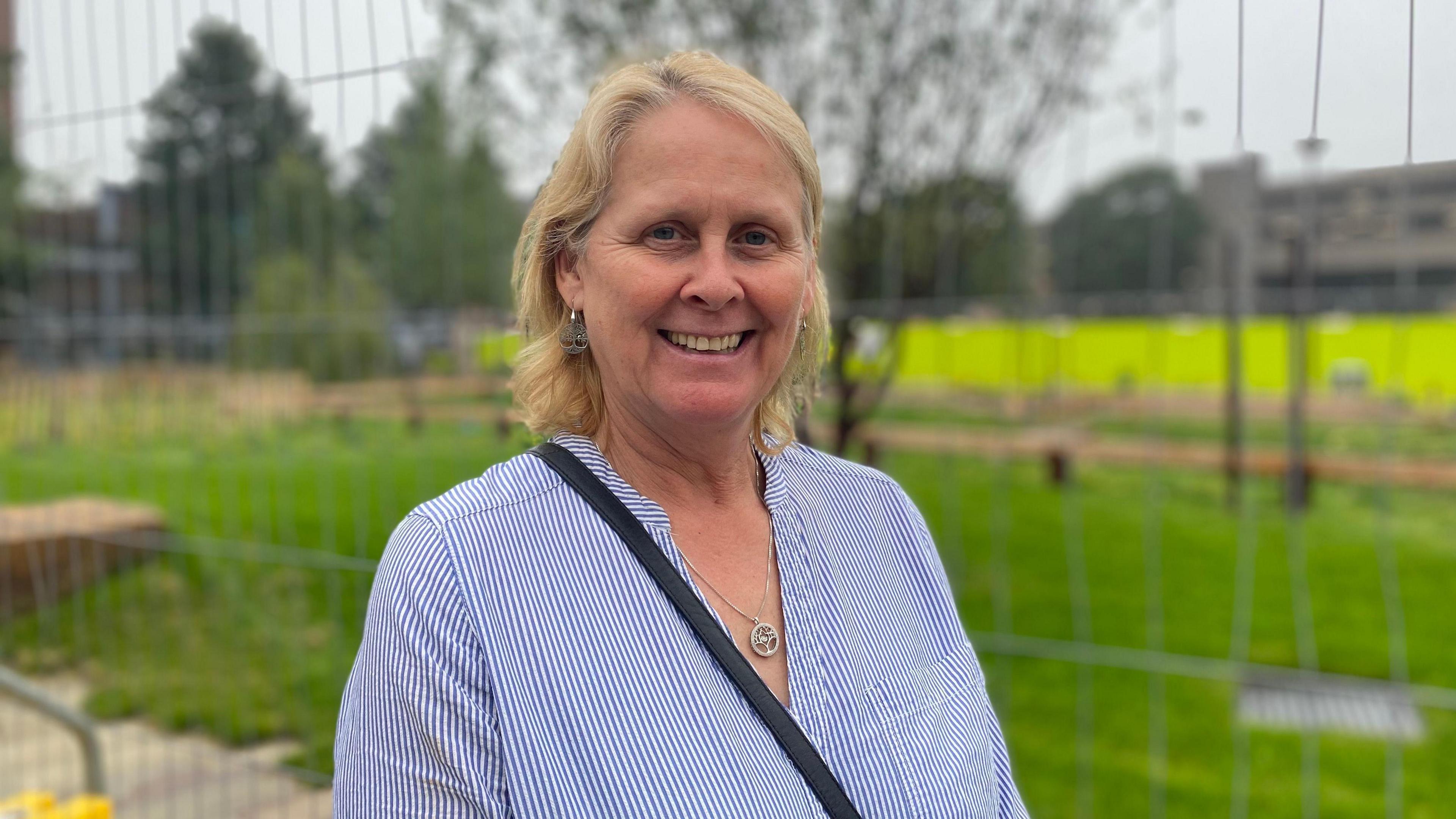Women textile workers statue unveiling date revealed
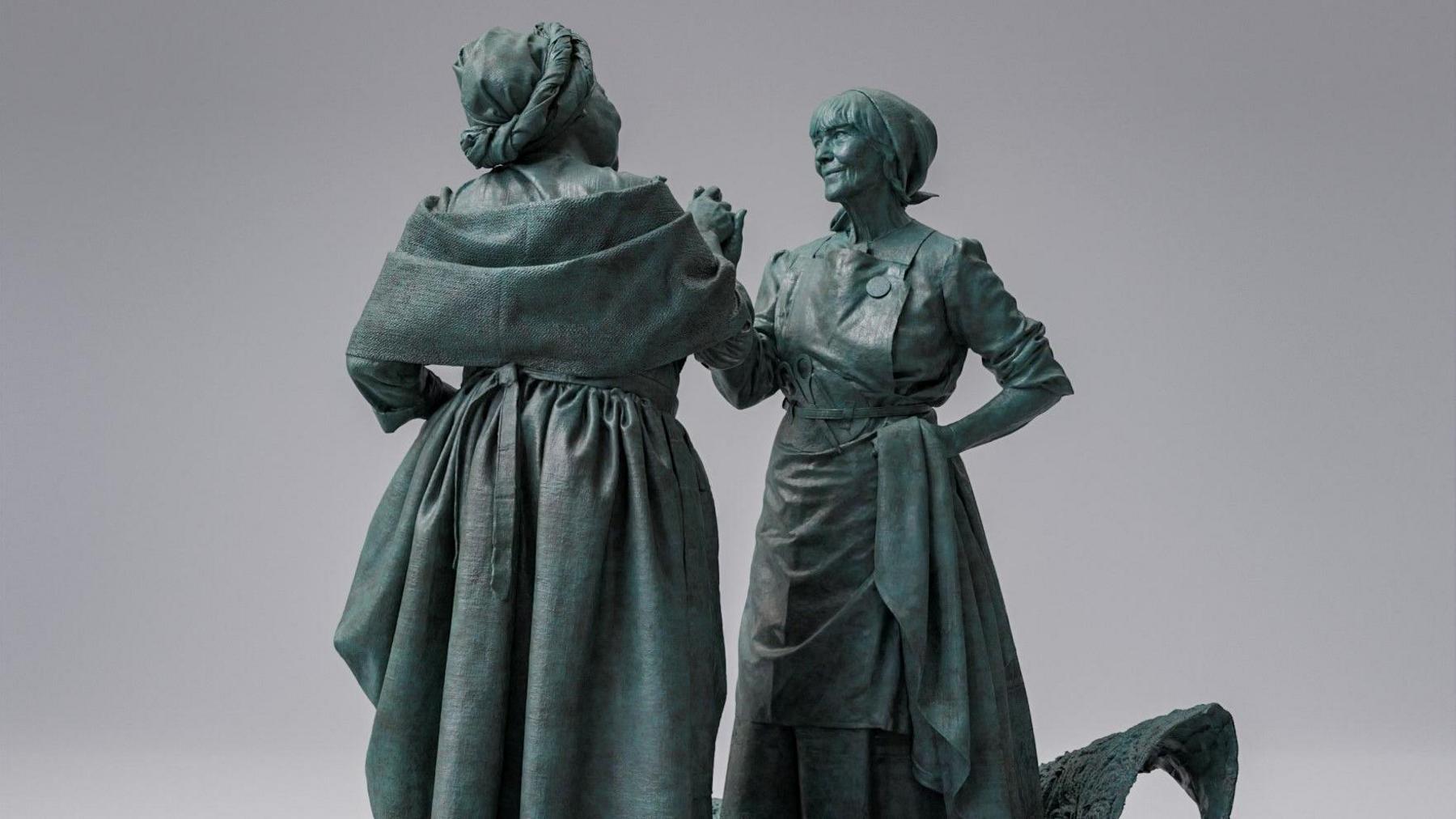
The statue shows a British mill worker meeting a farm worker from the cotton fields
- Published
A statue paying tribute to the women who harvested and worked the cloth for Victorian mills will be put in place in Nottingham early next year.
Titled 'Standing in this Place', the artwork will feature an African-Caribbean farm worker and British mill worker clasping hands in greeting.
Sculptor Rachel Carter said it represented the often overlooked contribution of women to the textiles on which much of Nottingham's wealth was once based.
It is due to be unveiled in January in the new Green Heart park in the Broadmarsh area.
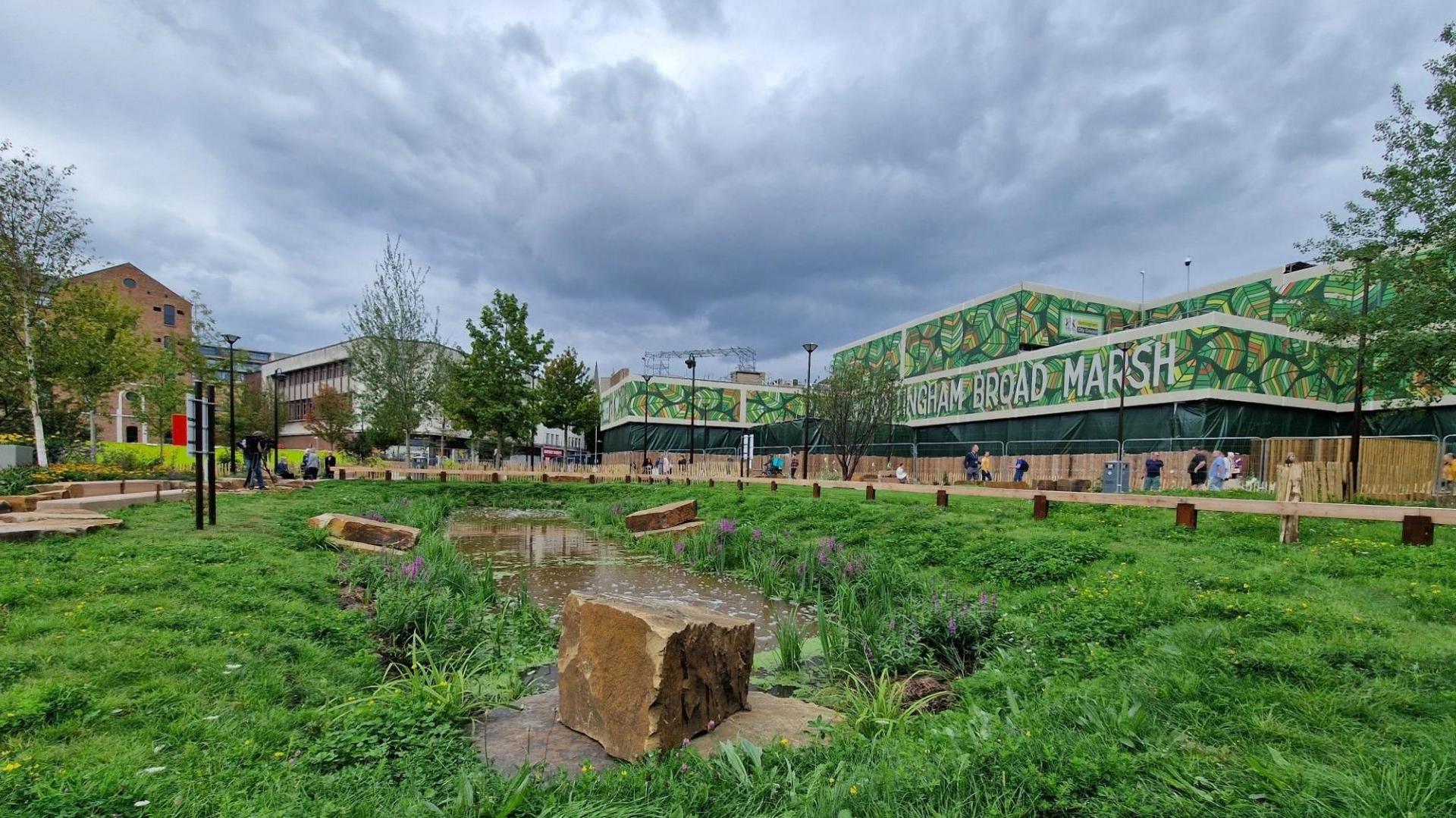
The statue will be sited in the Green Heart area, which opened in September
Ms Carter had already discovered that several of her ancestors worked in mills in Derbyshire when she joined a project investigating the lives of ordinary people involved, from the fields to the factory, in the textile industry.
She said: "They asked me, as a sculptor, what would you do on this?
"It's taken four years of design and fundraising but now it really is going to happen.
"And it is going to be in a beautiful spot right in the centre of the city."
The £210,000 cost has been raised through public and private donations.
The Green Heart park opened earlier in September on part of the site once occupied by the Broadmarsh Shopping Centre and, before than, close to slums where many mill workers were forced to live.
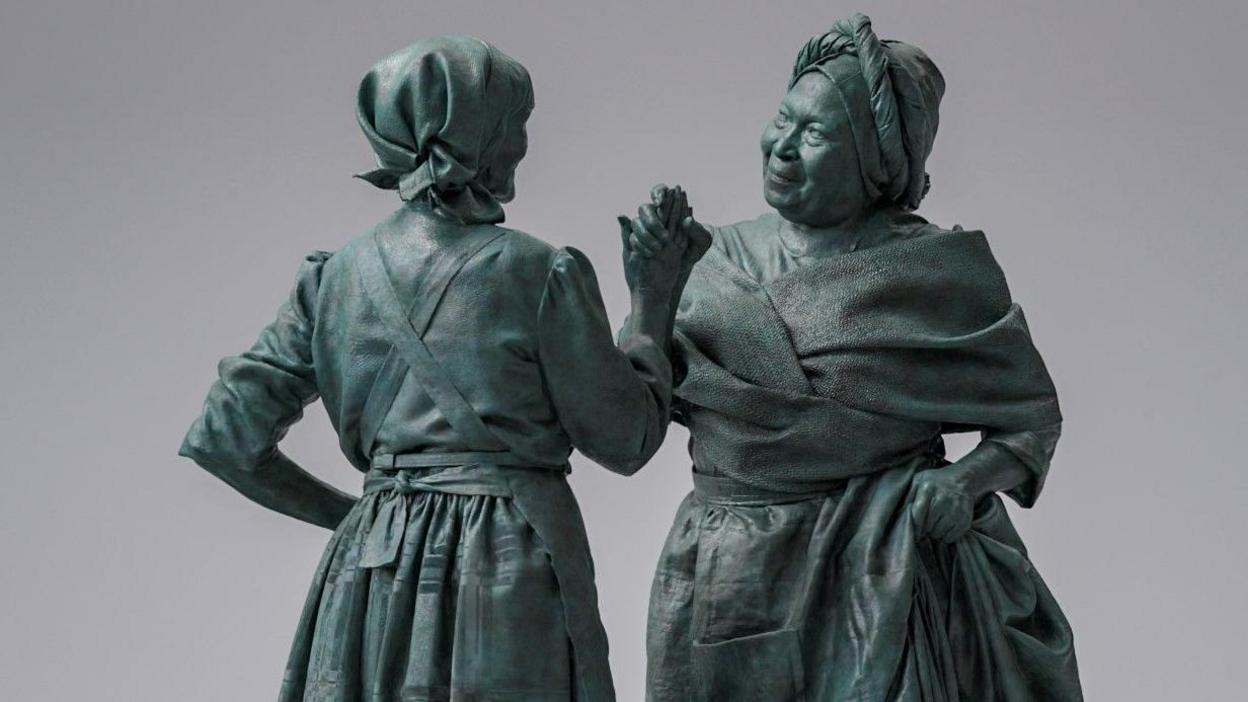
Slaves in the British Caribbean were freed in 1834 but cotton from slaves states in the US was still used.
Ms Carter said: "This is about recognising the legacy of these historical women.
"If you walk around Nottingham and see all these signs of our industrial heritage and see the names on the streets of those that sat on the wealth.
"But then you think about how the workforce was 80% female and where are they honoured? Where is their contribution recognised?
"And as well as the working class women in Britain, there's also the role of workers, many of whom were slaves, in the Americas and Caribbean."
Around 750,000 slaves in the British West Indies were freed in 1834, but Britain continued to buy cotton from slaves states in the US.
Get in touch
Tell us which stories we should cover in Nottingham
Follow BBC Nottingham on Facebook, external, on X, external, or on Instagram, external. Send your story ideas to eastmidsnews@bbc.co.uk, external or via WhatsApp, external on 0808 100 2210.
Related topics
- Published5 September 2024
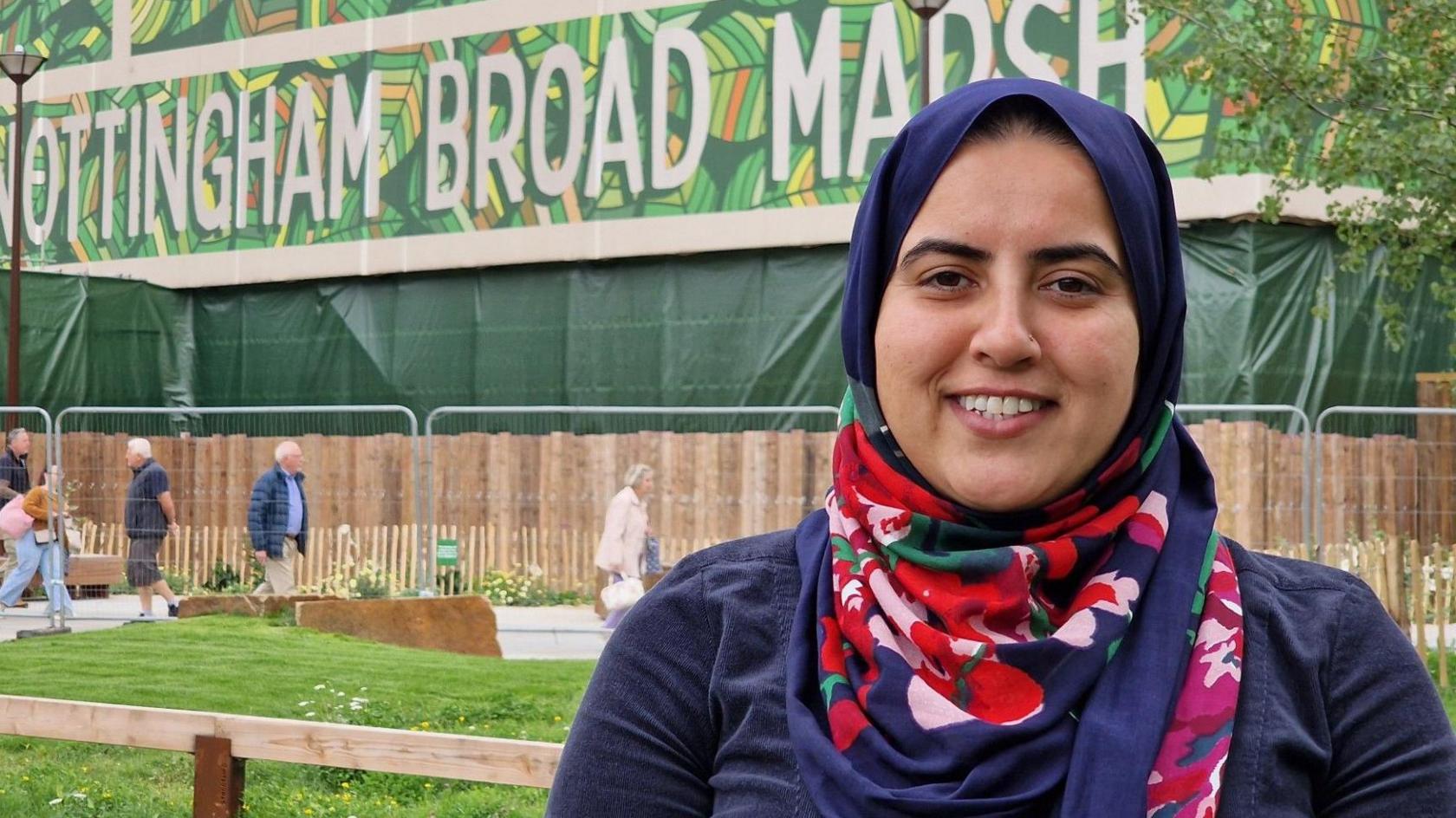
- Published4 September 2024
